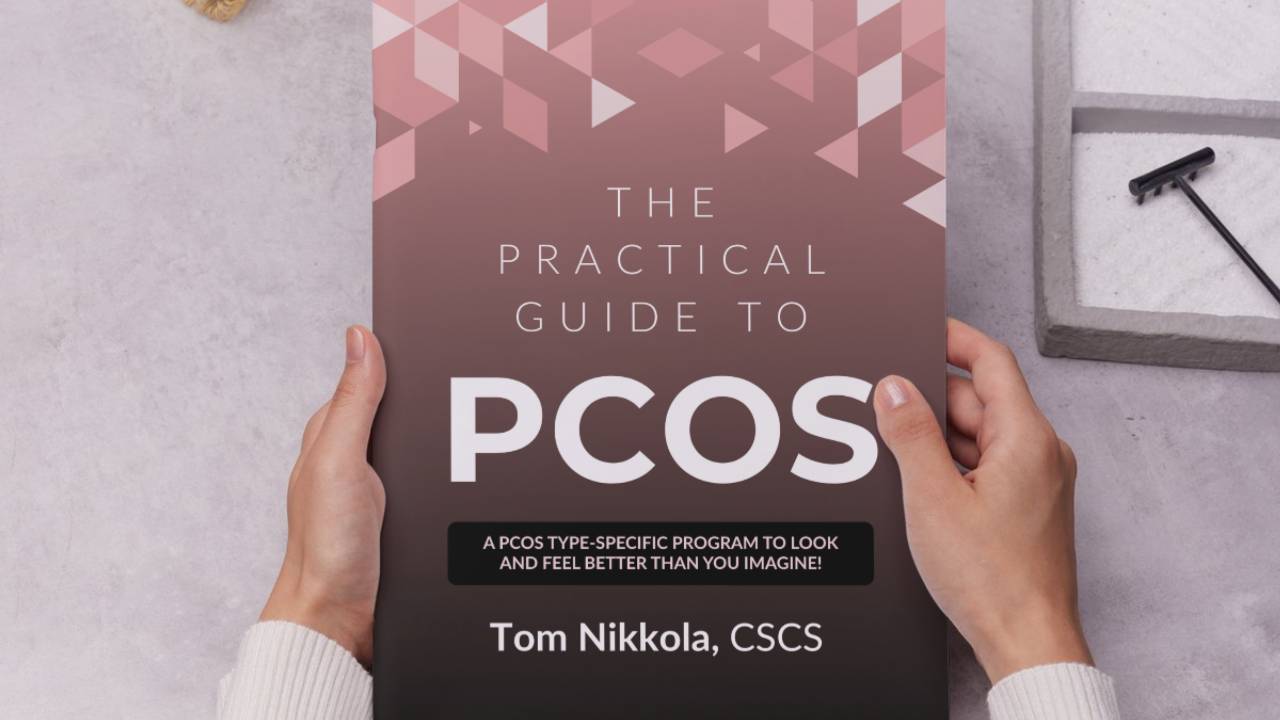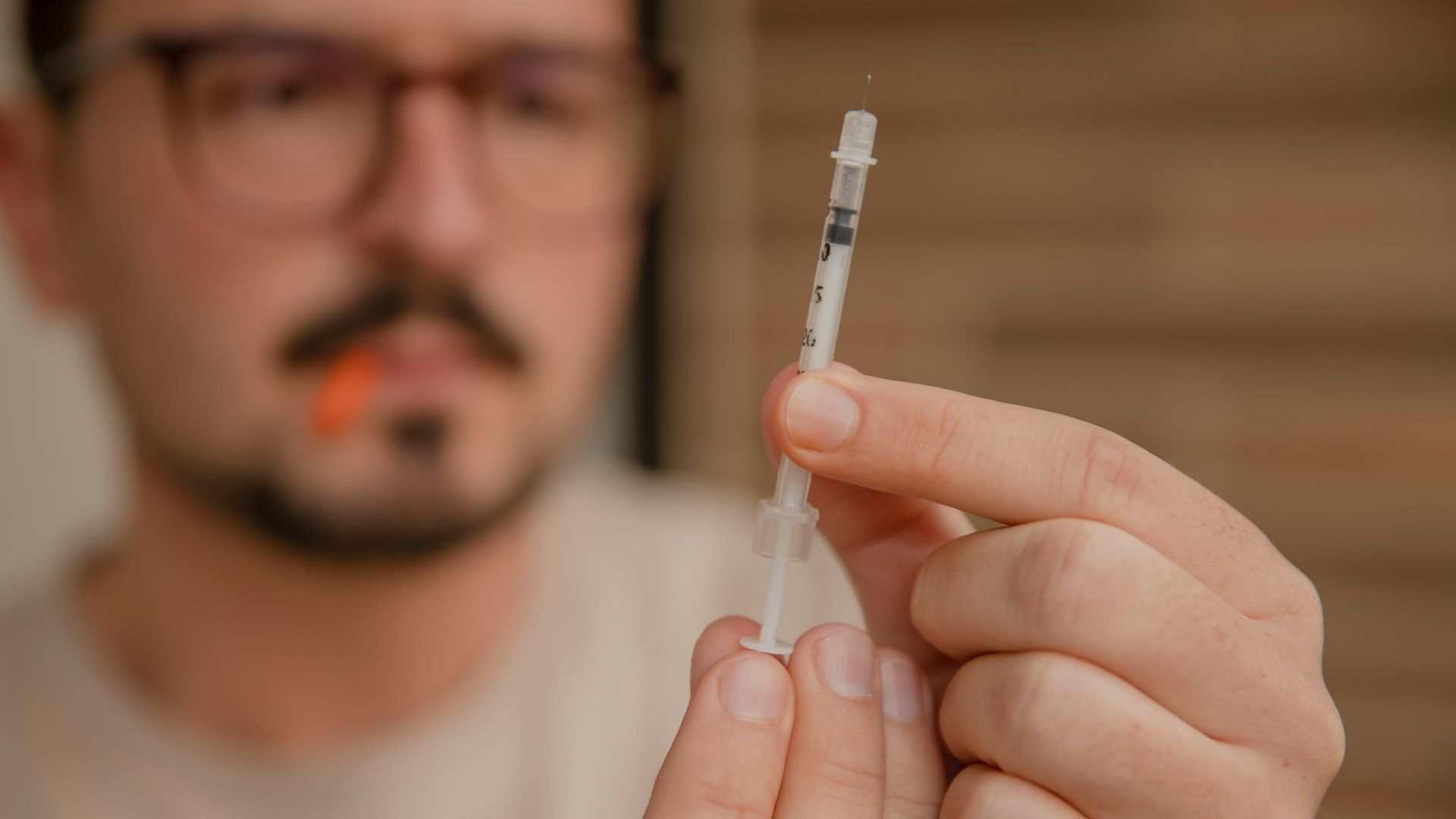
This is the Worst Thing You Can Do for Bloating, Gas, or Reflux
Oct 21, 2025"My doctor told me I need it for reflux.”
I hear this multiple times each week from new clients who've been using acid-lowering medications for months, even years.
They talk about it casually, like it's no big deal.
But then, as we talk, they start to understand how so many of their health issues got worse after they started on the medicaiton:
-
Constant bloating
-
Gas after meals
-
Struggling to digest protein
-
Weak nails and thinning hair
-
A DEXA scan showing early signs of osteopenia
-
And that nagging feeling that they're just wasn’t absorbing her nutrients
If this sounds just like you, you're not alone.
Over the past decade, I’ve lost count of how many people, men and women, have said the same thing:
“I’ve been taking Pepcid, Prilosec, or Nexium for years, and my doctor says I should stay on it.”
Meanwhile, their digestion is wrecked, their bones are weakening, and their nutrient absorption is tanked.
They’ve been told their stomach is too acidic.
When in reality, it’s not acidic enough.
The Myth That Broke Your Gut
Most people start taking acid-lowering meds after a stressful stretch of life or after a few too many takeout meals.
They feel that burning in their chest, that sour taste that creeps up their throat, and naturally think:
“I must have too much acid.”
It’s a logical guess, but it’s almost always wrong.
In reality, acid reflux and heartburn are most often caused by low stomach acid, not high.
Here’s why that happens.
When your stomach acid is too low (a condition called hypochlorhydria), your food doesn’t digest properly.
Protein sits and ferments. Carbohydrates feed the wrong bacteria. Gas builds up, pressure rises, and that pressure pushes stomach contents up, right through your esophageal sphincter.
That’s when you feel the burn.
So what do most people do?
They take something to lower acid even further, like Pepcid or Prilosec.
Which temporarily reduces the burn…but makes the real problem worse.
What Happens When You Shut Down Stomach Acid
Your stomach acid isn’t there just to make you uncomfortable after spicy food. It’s vital for survival.
It’s the first domino in your entire digestive process, signaling to the pancreas, liver, and gallbladder to do their jobs.
So when you chronically suppress acid, you don’t just weaken digestion. You break the entire chain of nutrient absorption.
Here’s what that looks like:
1. You Stop Digesting Protein Properly
Stomach acid activates an enzyme called pepsin, which breaks down protein. Without enough acid, you can’t fully digest meat, fish, eggs, or even collagen.
That means less amino acids available to build muscle, enzymes, neurotransmitters, and connective tissue.
You may feel bloated after protein-heavy meals and assume “meat is too heavy.”
Nope, you just don’t have the acid to break it down.
2. You Stop Absorbing Minerals
Calcium, magnesium, zinc, and iron all depend on stomach acid to be absorbed.
Without enough acid, these minerals pass right through you. Over time, this can lead to:
-
Osteopenia and osteoporosis (from poor calcium absorption)
-
Anemia (from iron deficiency)
-
Cramps or muscle twitches (from low magnesium)
-
Weakened immunity (from low zinc)
It’s one of the reasons people on long-term acid-lowering meds often end up with low bone density or chronic fatigue.
3. Your Gut Microbiome Gets Wrecked
Stomach acid isn’t just for digestion. It’s your first line of defense against pathogens.
It kills bacteria, viruses, and fungi before they ever reach your intestines.
When you suppress acid, you open the door to bacterial overgrowth (SIBO), candida, and other gut imbalances.
That’s why so many people on these meds develop gas, bloating, constipation, or diarrhea after a few years.
4. You Develop Food Sensitivities
Poor digestion = large, undigested food particles entering your intestines.
Your immune system sees those as foreign invaders and starts producing antibodies.
Over time, that leads to new food intolerances, especially to protein-rich foods like eggs, beef, or dairy.
5. You Weaken Your Immune System
About 70% of your immune system lives in your gut. When your gut is inflamed or overrun with bacteria that don’t belong there, your immune response goes haywire.
That’s why so many chronic acid-suppressor users end up catching every cold, flu, or stomach bug that goes around.
But My Doctor Said I Need It Forever
I hear this every week.
Doctors often prescribe acid-lowering medications as if they’re harmless, like multivitamins for heartburn.
But these medications were never designed for long-term use.
They were meant for short-term relief...4 to 8 weeks at most...while the underlying cause is addressed.
Instead, millions of people have been taking them for years.
And because they temporarily reduce symptoms, the real root cause, low acid and poor digestion, gets ignored.
So What Actually Causes Reflux and Low Acid?
It’s rarely one thing. It’s usually a perfect storm:
-
Chronic stress: The “fight or flight” state diverts blood away from digestion.
-
Eating too fast: Your brain never signals your gut to produce enough acid.
-
Processed carbs and sugar: Feed gas-producing bacteria that increase pressure in the stomach.
-
Alcohol: Relaxes the esophageal sphincter (hello reflux).
-
Nutrient deficiencies: Low zinc and B vitamins impair stomach acid production.
-
Aging: Stomach acid production naturally declines with age—especially after 40.
Sound familiar?
This is why people often say, “My digestion was fine in my 30s, and then it all went downhill.”
What You Can Do Instead
If you’re nodding your head right now thinking, “This is me,” don’t panic, and don’t quit your medication cold turkey.
Here’s how to start improving your digestion naturally:
Step 1: Support, Don’t Suppress
Instead of shutting down your acid, support it.
If you’ve been on acid-lowering meds, your stomach may need help rebuilding its digestive fire.
That’s where a professional-grade digestive enzyme and acid formula comes in.
The one I recommend is part of my Foundational Five protocol on Fullscript.
It contains betaine hydrochloride (HCl), pepsin, pancreatic enzymes, and ox bile, the same compounds your body uses to digest food.
This formula helps:
-
Break down protein and fat more effectively
-
Support nutrient absorption
-
Reduce bloating and post-meal heaviness
-
Rebuild your stomach’s natural acid balance
Step 2: Eat Slower, Breathe, and Chew
Digestion starts before food even hits your stomach.
When you take time to chew and breathe between bites, your brain tells your stomach to start producing acid and enzymes.
If you eat in a rush or while stressed, that signal never happens.
Step 3: Fix Your Meal Timing
Eating late at night or lying down right after meals is a reflux guarantee.
Give yourself 2–3 hours after eating before lying down, and consider finishing dinner earlier in the evening.
Step 4: Rebuild Your Gut
If you’ve been on antacids or PPIs for years, your gut microbiome probably needs support too.
Start simple:
-
Eat a variety of colorful vegetables for prebiotic fiber.
-
Use a high-quality, non-histamine probiotic for a few months.
As your gut heals, your natural acid production will often rebound.
The Big Picture: It’s Not About “Quitting a Pill.” It’s About Restoring Function
The goal isn’t to villainize your medication, it’s to restore what it replaced.
Your stomach acid isn’t the enemy. It’s the gatekeeper of good digestion, nutrient absorption, and even immune function.
If you’ve been living on Pepcid or Prilosec for years, you’ve been fighting your body’s biology instead of working with it.
But with the right approach, and a little patience, you can rebuild it.
And when you do, you’ll notice something incredible:
-
Meals leave you satisfied, not bloated.
-
Protein digests smoothly again.
-
You’ll sleep better and feel lighter.
-
And that mysterious bone loss or fatigue? It starts to reverse.
Because when you fix digestion, you fix everything downstream.
If this hit home, forward it to someone who needs to hear it.





